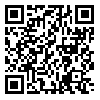Volume 5, Issue 2 (2017)
Health Educ Health Promot 2017, 5(2): 19-32 |
Back to browse issues page
Download citation:
BibTeX | RIS | EndNote | Medlars | ProCite | Reference Manager | RefWorks
Send citation to:



BibTeX | RIS | EndNote | Medlars | ProCite | Reference Manager | RefWorks
Send citation to:
Fadaiyan Arani E, Amin Shokravi F, Tavakoli Ghouchani H. The Relationship between Health Literacy and Knowledge in Rural Patients with Type 2 Diabetes Mellitus in 2016. Health Educ Health Promot 2017; 5 (2) :19-32
URL: http://hehp.modares.ac.ir/article-5-8888-en.html
URL: http://hehp.modares.ac.ir/article-5-8888-en.html
1- M.Sc. Student, Department of Health Education & Health Promotion, Faculty of Medical Sciences, Tarbiat Modares University, Tehran, Iran
2- Associate Professor, Department of Health Education & Health Promotion, Faculty of Medical Sciences, Tarbiat Modares University, Tehran, Iran
3- Assistant Professor, Department of Health Education & Health Promotion, Faculty of Health, North Khorasan University of Medical Sciences, Bojnurd, Iran
2- Associate Professor, Department of Health Education & Health Promotion, Faculty of Medical Sciences, Tarbiat Modares University, Tehran, Iran
3- Assistant Professor, Department of Health Education & Health Promotion, Faculty of Health, North Khorasan University of Medical Sciences, Bojnurd, Iran
Abstract: (6243 Views)
Aim: Health literacy means having basic health information and services needed to make appropriate health decisions. The aim of this study was to assess the relationship between health literacy and knowledge in rural patients with type 2 diabetes mellitus.
Methods: This descriptive-analytic study was performed on 120 patients with type 2 diabetes patients in 2016 in two health homes of Hossein Abad and Kaghazi villages of Aran and Bidgol City in Isfahan Province. Sampling was done by census. Data were gathered by three questionnaires. They were valid and standard questionnaires including demographic, knowledge and HELIA. The data were analyzed by SPSS16 software using descriptive statistics, T-test, correlation coefficient and ANOVA.
Findings: In this study, the participants were 66.7% women, 29/2% worker, 5/8% employee, 4/2% retired, 5% unemployed, and the rest were housewives. The mean score of health literacy and knowledge was 13/82±2/20 and 114±23/21, respectively. The mean age of the participants was 48/88±9/57 years, the mean score of knowledge and health literacy of the participants was 13/82±2/20, 114±23/21, respectively. There was a significant relationship between health literacy and knowledge (p=0.007) and between health literacy and educational level (p<0.05). Also there was a significant difference in health literacy between men and women (p=0.001).
Conclusion: According to the results of the study on the relationship between health literacy and educational level, this study suggests that since the women have an axial role in family health, in order to improve the level of knowledge, the formal education level in rural women diabetic patients must be increased.
Methods: This descriptive-analytic study was performed on 120 patients with type 2 diabetes patients in 2016 in two health homes of Hossein Abad and Kaghazi villages of Aran and Bidgol City in Isfahan Province. Sampling was done by census. Data were gathered by three questionnaires. They were valid and standard questionnaires including demographic, knowledge and HELIA. The data were analyzed by SPSS16 software using descriptive statistics, T-test, correlation coefficient and ANOVA.
Findings: In this study, the participants were 66.7% women, 29/2% worker, 5/8% employee, 4/2% retired, 5% unemployed, and the rest were housewives. The mean score of health literacy and knowledge was 13/82±2/20 and 114±23/21, respectively. The mean age of the participants was 48/88±9/57 years, the mean score of knowledge and health literacy of the participants was 13/82±2/20, 114±23/21, respectively. There was a significant relationship between health literacy and knowledge (p=0.007) and between health literacy and educational level (p<0.05). Also there was a significant difference in health literacy between men and women (p=0.001).
Conclusion: According to the results of the study on the relationship between health literacy and educational level, this study suggests that since the women have an axial role in family health, in order to improve the level of knowledge, the formal education level in rural women diabetic patients must be increased.
Article Type: Original Article |
Subject:
Health Literacy
Received: 2017/08/17 | Accepted: 2017/06/1 | Published: 2017/10/18
Received: 2017/08/17 | Accepted: 2017/06/1 | Published: 2017/10/18
| Rights and permissions | |
 |
This work is licensed under a Creative Commons Attribution-NonCommercial 4.0 International License. |





